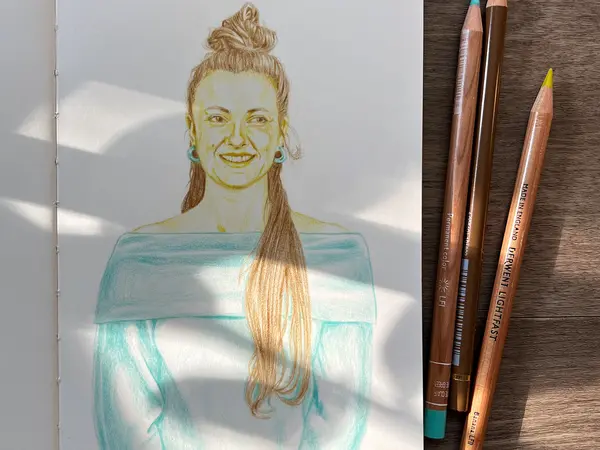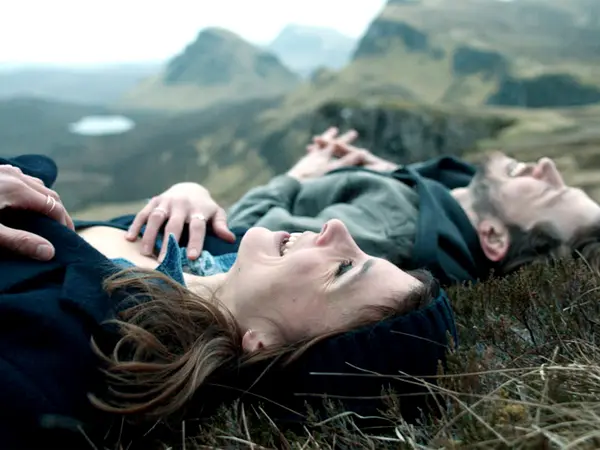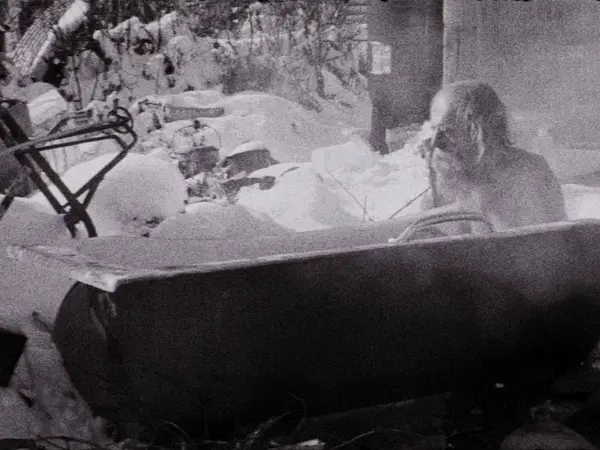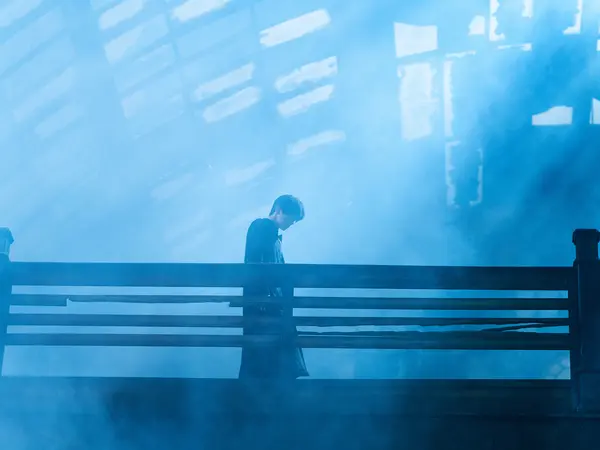
German director Christian Petzold delivers once again with this deviously-structured psychodrama starring his current muse, Paula Beer.

German director Christian Petzold delivers once again with this deviously-structured psychodrama starring his current muse, Paula Beer.
When sad-eyed music student Laura (Paula Beer) is involved in a car crash that leaves her boyfriend dead from an horrific head injury, she shows no signs of trauma or grief. In fact, with the intimation that she was plagued with interior suffering prior to the event, this moment appears to have jolted her back towards some semblance of calm reason. Betty (Barbara Auer), an older woman living alone in a country house on a quiet lane is the first on the scene, and comes to Laura’s aid even though she has been flung from the wreckage with only superficial scratches.
This being a Christian Petzold film, every frame comes drenched in the cool, clear waters of ambiguity, and even the very specific and strange manner in which the accident occurs leaves it open as to whether Laura herself may have caused it in a fit of emotional pique. She then hovers, ghost-like, into Betty’s house where she asks if she can stay for an undetermined amount of time. Without hesitation, Betty allows it, and you’re left to ponder why she would invite a discombobulated stranger to nestle under her wing.
As usual, Petzold draws in a number of artistic inspirations and touchpoints, then riffs around them without ever erring into anything as déclassé as homage. The title of the film is a reference to a piece by Maurice Ravel that Laura is practicing for a recital and that is heard a number of times on the car radio of Betty’s son, Max (Enno Trebs), who is quietly perturbed by her mother’s decision and Laura’s presence. As in the director’s previous films such as 2007’s Yella and 2014’s Phoenix, music acts less as an enhancer of mood than it does a trigger-point for dormant memories; a hypnotic tool that unlocks the enclosed recesses of the psyche – and that applies to both the characters in the film and the audience watching.
Another sneakily-deployed literary allusion comes in the form of Mark Twain’s ‘The Adventures of Tom Sawyer’, specifically the fable of how Tom hoodwinks his compadres not only into painting a fence for him, but paying him for the pleasure. Betty is first introduced painting the fence in her front garden, and she regales the story to Laura when she asks if she can help. Perhaps she does so to come clean early on and admit that she may be exploiting her visitor for an obscure (but possibly benign) ulterior motive.
As the story of Miroirs No. 3 unfolds with an intractable and wholly compelling internal logic, Petzold gravitates towards a twist which is too signposted and obvious to have any real bearing on what the film is actually about. Instead, its ramifications colour the intense final act in which Betty and Laura are given time to reflect on their experiences and work out how they will continue to live their lives. And, more importantly, will they learn not fall into the same traps as they did the first time around? Did this chance encounter in which the two protagonists are able to inhabit the roles of emotional surrogates for each other actually provide a form of performative therapy and consolation? Or is Laura – like in the old Otto Preminger movie – just a ghostly siren transfixing all who meet her? (Beer even looks identical to Gene Tierney, no?)
All of which is to say, no-one, absolutely no-one is doing it like Petzold. As with the titular Ravel piece, this is a work that is mellifluous, melodious and mysterious in equal measure. A Sphinx-like Beer, once again, seems to connect with her director on a level which transcends the purely professional, and through her economic yet forceful use of body language and expression, she makes certain that the film adheres perfectly to Petzold’s immaculate calculations.
To keep celebrating the craft of film, we have to rely on the support of our members. Join Club LWLies today and receive access to a host of benefits.
 How To Train Your Dragon | Lollipop | Ladybird Ladybird (1994)
How To Train Your Dragon | Lollipop | Ladybird Ladybird (1994)
 Protein review – nasty, funny, soulful
Protein review – nasty, funny, soulful
 Daisy-May Hudson: ‘I want to make films that crack people’s hearts open’
Daisy-May Hudson: ‘I want to make films that crack people’s hearts open’
 The Dreamworld Aesthetic of 8½
The Dreamworld Aesthetic of 8½
 How To Train Your Dragon review – never quite catches the updraft needed to soar to uncharted heights
How To Train Your Dragon review – never quite catches the updraft needed to soar to uncharted heights
 This Must Be the Place: A Queer East Correspondence
This Must Be the Place: A Queer East Correspondence
 Lollipop review – a gut-punching debut
Lollipop review – a gut-punching debut
 Tornado review – tries a bit too hard to be different
Tornado review – tries a bit too hard to be different
 Introducing… La Dolce Vita: A Celebration of Italian Screen Style
Introducing… La Dolce Vita: A Celebration of Italian Screen Style
 Dangerous Animals | Ballerina | Zombie Flesh Eaters (1979)
Dangerous Animals | Ballerina | Zombie Flesh Eaters (1979)
 The Encampments review – inspiring portrait of collective action
The Encampments review – inspiring portrait of collective action
 Falling Into Place review – Sally Rooney-core for the big screen
Falling Into Place review – Sally Rooney-core for the big screen
 Dangerous Animals review – why sharks? They’re cinematic!
Dangerous Animals review – why sharks? They’re cinematic!
 Cannes Film Festival Debrief 2025
Cannes Film Festival Debrief 2025
 Bogancloch review – film and landscape are as one
Bogancloch review – film and landscape are as one
 The Ritual review – fails to scare, entertain or convert
The Ritual review – fails to scare, entertain or convert
 Along Came Love review – an intimately epic love story
Along Came Love review – an intimately epic love story
 The Ballad Of Wallis Island review – relishes in daft physical comedy
The Ballad Of Wallis Island review – relishes in daft physical comedy
 Resurrection – first-look review
Resurrection – first-look review
 The Mastermind – first-look review
The Mastermind – first-look review






